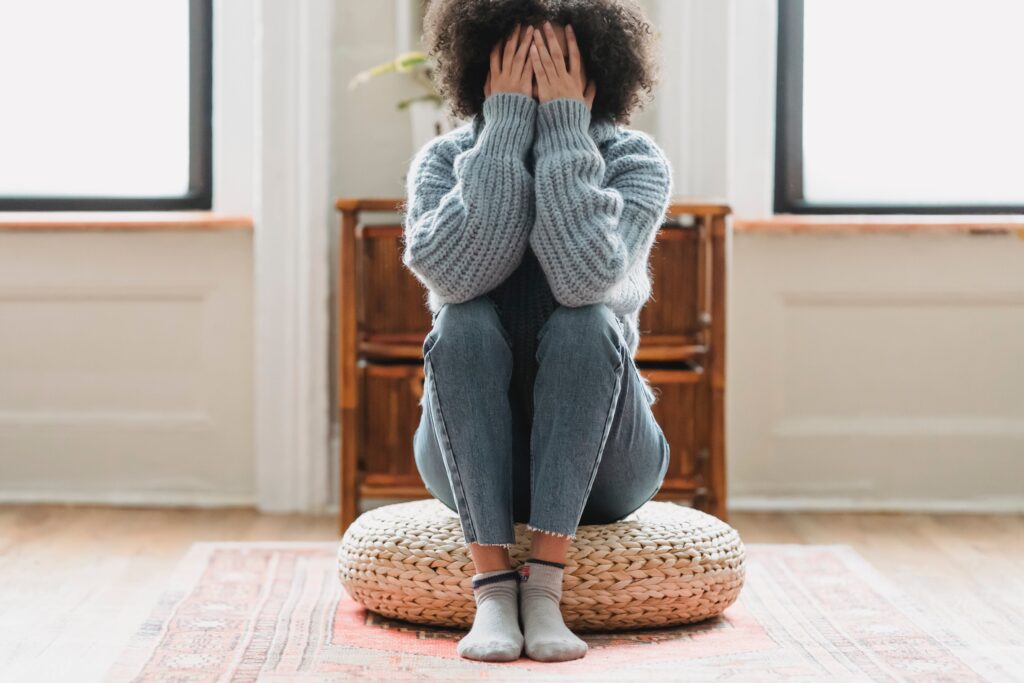
Hey you! 👋
When was the last time you were in the same room with people who feel like they are your people? The ones who relate to things that you relate to, and you know you can be yourself around them.
Can’t seem to remember?
Chances are, then, you might be experiencing loneliness.
Sadly, this feeling of loneliness can affect your mental and physical health.
But what is loneliness?
Loneliness is a subjective feeling state of being alone. It’s when you want human interaction but don’t receive it. It’s an imbalance of desired social interaction and actual social interaction.
Refrain from confusing it, however, with being alone. While loneliness is a feeling, being alone is a state of being—a situation.
You can feel lonely even in a room full of people, within your family, with your partner, and colleagues.
What causes loneliness?
Loneliness can have many causes. From moving away to working alone, to being retired and having a less social life. Frankly, any situation that creates gaps in spending quality time with people.
And if you are thinking now: “OK, but the older generation is the loneliest because they don’t have friends and don’t go to parties.”
You are thinking logically. Yet, the truth is, they are not.
Surprisingly, the loneliest generation and most impacted group is Gen Z.
Yes, Gen Z.
The generation that is supposed to be out and about. And that is surrounded by the most people they will ever have at any given point—our generation. Research has found that out of ten Gen Z people, seven have reported feeling lonely sometimes or constantly.
While the loneliness epidemic started as early as the 1950s because of an increasing trend of people relocating for jobs, the digital revolution reached its peak.
As the most connected generation, we are the least connected.
And as mentioned earlier, it comes with a set of consequences.
Not only does it lower the perceived quality of life, but it can also increase health issues. To name a few:
– Misuse of substances
– Alzheimer’s disease progression
– Cardiovascular problems
– High blood pressure – Poor decision-making abilities
– Depression
– Altered brain function
While loneliness is not a trait of just one generation, it is a feeling that doesn’t discriminate. Regardless of age, wealth, job, or geography, everyone can experience loneliness.
Yet, it hits Gen Z the hardest, as we have seen.
A few reasons contributing to this fact:
1. Overstimulation
The world is becoming a more stressful place. With the rise of technology, we can now get more people than our grandparents ever could. But with this optimization came more demand as well.
A natural stress response, therefore, is to seek comfort.
At the same time, the content we consume daily could be more helpful. To a large proportion, the content has negative news attached to it, making us feel more stressed.
2. Social media
Social media has made it easy for us to connect with anyone anytime. But due to the vast number of people, we cannot maintain the relationship to a high degree.
At times, in-person interaction is also impossible.
Add the constant comparison and FOMO in the mix, and you set yourself up for an episode of loneliness.
3. Being independent
Lastly, relying on people in recent years has become more challenging. We are expected to be more and more self-efficient, not to bother anyone, but to find solutions ourselves.
If given advice on how to overcome loneliness, the advice would always sound like: “Do this and do that.” It never becomes a problem for anyone other than ourselves.
And here comes the tricky part. How do you fix loneliness?
Short answer: You cannot fix it for yourselves.
But you can fix it for someone else.
We have grown accustomed to everything related to us being our problem. It always falls within our responsibility to take care of the problem. That is where the issues lies with loneliness.
While going out and interacting more with people might be the desired outcome, the intention makes a difference. We cannot control what the people around us feel and perceive us.
Placing this expectation will only backfire and make us feel even lonelier since, after attempts, we still weren’t successful in getting rid of this feeling.
So, what if you try to make someone else feel less lonely? For the sake of them. Let loneliness not be their own problem. Care for the ones around you.
This is why volunteering is a great place to start and keep activating. While volunteering, it’s rarely a question about what you like or what is in it for you. It’s about the community you serve. You can do it in an organization like AIESEC and reach out to your local branch or any other organization that fights for a cause you care about.
And instead of waiting for your friend to show up, why not show up for them first? Chances are they might be feeling just as lonely, if not more.
Do this, and you will get a full sense of fulfillment and peace. And many people will care about you just as much as you care for them.
Try it out, and let us know how it went!
0
Leave a Reply